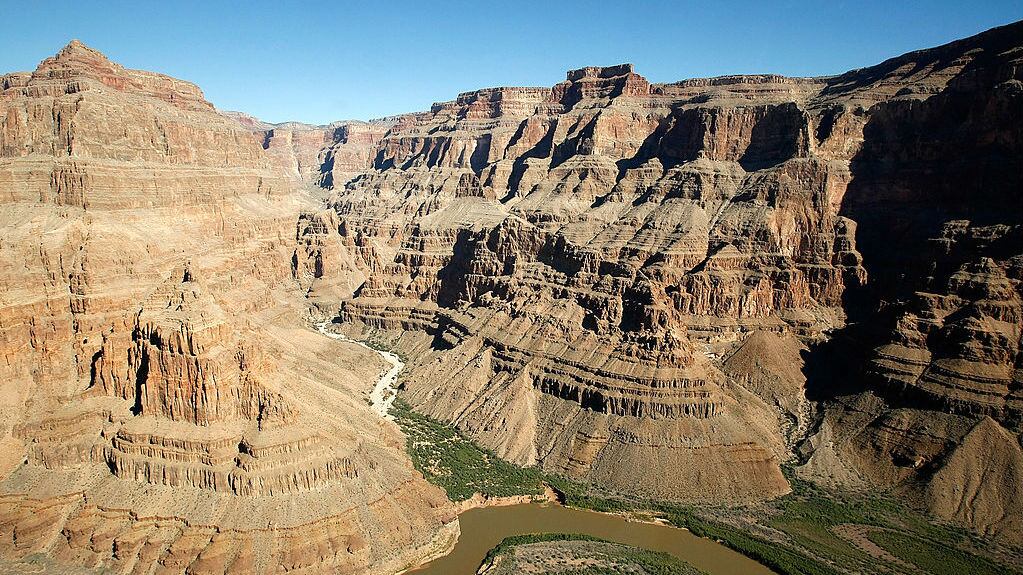GRAND CANYON, Ariz. — A creationist trying to prove that the Earth is only thousands of years old and that the Grand Canyon was created by God in a few days filed a religious discrimination lawsuit against the National Park Service last week.
Andrew Snelling, described by The Atlantic as a prominent "young-Earth creationist," claimed that the Park Service rejected his request to collect 50 to 60 fist-sized rocks from the canyon because of his beliefs. He said in the May 9 federal lawsuit that he sought to study sediment folds that he argued are unique to the Grand Canyon.
Snelling told the Phoenix New Times that he was not surprised by the reaction to his research but was disappointed.
“To say, 'No, you can't collect samples,' is really hindering investigation (of the Grand Canyon),” he said. “By being open, that's how science works.”
Snelling, who lives in Kentucky, works for Answers in Genesis, a Christian nonprofit founded by Ken Ham, the man behind the Ark Encounter. The Ark Encounter is a Christianity-based theme park in Williamstown that includes a 510-foot long reproduction of Noah’s Ark.
Snelling and other Answers in Genesis employees believe that the Book of Genesis in the Bible is historically accurate and that God created the Earth in six days.
Snelling, a native of Australia who earned a doctorate in geology from the University of Sydney, argued in his lawsuit that he has previously completed multiple research projects in the Grand Canyon without issue. Research in Grand Canyon National Park is restricted, but officials grant permission for more than 80 research projects each year, according to the National Park Service.
Patrons wait for tours outside the Ark Encounter July 5, 2016, in Williamstown, Kentucky. The Ark Encounter is a theme park centered around a 510-foot-long reproduction of Noah's Ark.
Before a permit is granted or denied, a researcher must submit an application, a full research proposal and two peer reviews of the proposed study, the Park Service said on its website. Once the package is submitted, it is reviewed by the park’s research review team.
Snelling submitted his application package in November 2013 asking for permission to collect rock samples on river trips he planned for April and July of 2014. Those river trips were already approved by park officials, the lawsuit said.
The Park Service denied his permit to collect the rocks in March 2014, his complaint said.
The lawsuit stated that Snelling’s package was sent to Karl Karlstrom, at the University of New Mexico; Ron Blakely, of Northern Arizona University; and Peter Huntoon, a University of Wyoming geologist. The complaint said that Karlstrom, who also believes the Grand Canyon is younger than most scientists believe, demonstrated “antipathy” for Snelling’s beliefs and suggested that he could find the same type of rocks he sought at alternate sites instead of the canyon.
Blakely wrote in his assessment of the project that “it is difficult to review such an outlandish proposal,” the lawsuit said. Huntoon wrote that reviewing the rocks would be fine, “just not processing the dead-end creationist material.”
“(It) is not a question of fairness to all points of view, but rather adherence to your narrowly defined institution mandate predicated in part on the fact that ours is a secular society as per our Constitution,” Huntoon wrote, according to the lawsuit.
Snelling’s complaint said that when he pushed back following the denial, park officials warned that collecting rocks without a permit would result in his being banned from further research in the park.
The complaint also referenced President Donald Trump’s May 4 executive order that promises protection of religious freedom from “undue interference by the federal government.”
Snelling’s lawsuit, filed on his behalf by the Alliance Defending Freedom, argues that the National Park Service is violating his First Amendment rights to free speech and religious freedom, as well as his Fifth Amendment rights to due process and equal protection. The suit asks for a judge to order the Park Service to grant his permit and for the agency to pay his attorneys’ fees and a nominal financial award.
"I don't really expect an apology," Snelling told the New Times. "I just expect to have fair treatment. They need to be neutral in these world views."
Cox Media Group





